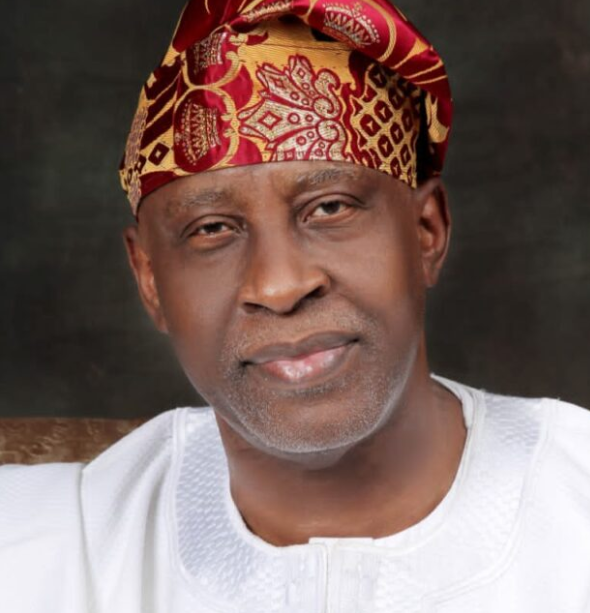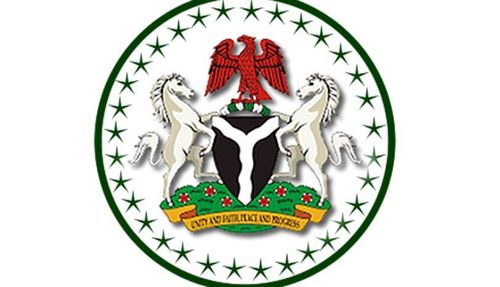OPINION: Oyo chieftaincy amendment law: The issues, by Adewuyi ADEGBITE
Pacesetter, the sobriquet of Oyo state, translated as ” Ajise bi Oyo laari, Oyo kii se bi baba enikan” to laymen and our “educated” fellow is no more than the innovations introduced to Ibadan and Western Region as a whole by the avatar, Obafemi Awolowo when he was the premier of Western Region in the post-colonial era. Mention must be made of Cocoa House, which is the first skyscraper in Nigeria; Western Nigeria Television, the first in Africa; free education; Liberty Stadium, the first Olympic size stadium in Africa; and the likes. These are great innovations. However, beyond that is the prime position of Oyo Yoruba people not only among Yoruba nation but Nigeria and Africa as a whole. Oyo civilization which encompasses the old Oyo empire, Oyo monarchical system, Oyo royalty, separation of power in Oyo which predates Jean Montesquieu’s birth, Oyo Yoruba language, arts and culture, drumming culture, literature as can be noted in oriki, esa, ijala and the likes. Oyo civilization included Oyo Yoruba Obas and especially Ibadan republican system which is an innovation in Africa. Traditional institution in Oyo state is one of the old Oyo heritage bequeathed by our forebears and its role in the maintenance of law and order in their respective domains make them to occupy a place of pride in the colonial era when the colonial authority had to sign the treaty of protectorate with no one other than Alaafin Adeyemi 1 in 1893. However, rather than being promoted and protected jealously as can be seen during the coronation of British monarch, King Charles 111 of Britain on Saturday May 6th, 2023, our traditional institution is being degraded and its power eroded by those under whose care it is entrusted.
Engineer Seyi Makinde administration has been a blessing to Oyo state in the last four years going by its policies with human face and it led to the support it got from people, which culminated in its victory in the March 18 gubernatorial election in the state. However, the news credited to the attorney general and commissioner for justice in Oyo state, Professor Oyelowo Oyewo as regards the decision of the executive council of the state to amend the law governing the approval and granting of beaded crown to Baales in Oyo state should be a source of concern to the discerning citizens of the state as regards the future of the traditional institution. Oba no longer rules but reigns! Nevertheless, auspicious functions of traditional rulers in their respective domains make them critical stakeholders in Oyo state. I will not belabor myself stating the functions of traditional rulers in this short piece but one fact remains that even governors who are lording it over Obas see traditional rulers as beautiful brides whose friendship must be courted and all candidates for different political offices throng the palaces of our traditional rulers in their quest for elective positions during their campaigns. Another fact is that because of relegation of Obas by “educated elites” since post-colonial era with no official functions given them, couple with the fact that the governor is the approving authority for Oba have made traditional rulers appendages of the governor. Thus, any Oba in quest of relevance and patronage or undue influence must court the friendship of the governor. In spite of the above, any true born Yoruba person irrespective of position he holds should give our traditional rulers respect and honor they deserve and their role guided jealously as seen in Britain of recent.
This brings me to the question of amendment of Oyo Chieftaincy Law by Oyo state government. Oyo attorney general and commissioner for justice, Professor Oyewo addressing press after the weekly meeting of the executive council spoke about the decision of Oyo state government to seek the amendment of section 28 of Oyo state chieftaincy law. The need for the amendment of the law according to Oyewo is that many Baales are seeking the government’s approval to wear beaded crown. Then, Oyo State Council of Obas and Chiefs which has the mandate to advise the governor on the issue has ceased to operate. “As a result, OYO executive council headed by Engineer Seyi Makinde wants the state House of Assembly to amend the law and make the governor sole authority to disburse and grant the right to wear beaded crown to interested Baales.” The extant law guiding the approval of crown sub 28 sub section 1 states that the governor can only approve application for beaded crown after consultation with Oyo state Council of Obas and Chiefs. The decision of the Oyo state executive council in this regard shows that the governor wants to usurp the functions of traditional rulers and this has no other name than dictatorship. It is doubtful whether the government sought the advice of the ministry of local government and chieftaincy matters or those of attorney general and the commissioner for local government and chieftaincy affairs on this matter. Even during the military era, advices were sought from the ministry and it went a long way to help the government in the implementation of its policies. However, I don’t think this is the case today. Or shall we say that the advice of the ministry is ignored?
Issue of beaded crown cannot be taken lightly as Oyo state is doing. Beaded crown is the scepter of authority of Obas in Yoruba land. This was granted among other paraphernalia by Oduduwa, the founder of Yoruba nation to his children and grandchildren who founded a town as a sign of authority over their domains. The definition of Oba in Yoruba land is “Iran ati eje Oduduwa ti o di olori Ilu.” This means that only a true-blooded Oduduwa is entitled to a beaded crown. As a matter of fact, during the colonial era, colonial authority had to seek the advice of the Ooni and Alaafin on such issues and their advices were strictly adhered to. For instance, in 1903, the governor of Lagos, Sir W Macgregor, had to invite Ooni Adelekan Olubuse 1 to Lagos to adjudicate on the festering dispute between Akarigbo of Remo and Elepe of Sagamu as whether Elepe was entitled to, by right, to wear beaded crown as Oba. It is in line with this that Western Region government in 1976 had to seek the advice of the traditional council when both Olubadan and Soun were to be granted the permission to wear beaded crown. In actual fact, it was Alaafin Adeyemi 3 who recommended the two Obas for the right and this was backed up by the roles of the two towns in the development of Yorubaland. Ibadan for instance, did not have a monarchical system as other Yoruba towns but most of those who ascended her throne had connection with key Oyo Yoruba Obas. For example, Baale Fijabi was a great grandson of Onpetu of Ijeru. Soun on the other hand is related to two classical thrones of Igbon and Iresa. According to Ooni Olubuse 1, in a correspondence with Macgregor, any crown that doesn’t originate from Ife or has the approval of the traditional council is “anyhow hat,” that is “Ade ijakuja.” Any Baale or “Oba” who wears such crown is treated as anyhow oba in the committee of Obas in Yoruba land. I hope the government understands my message.
In addition, reasons given by government for seeking the amendment of the chieftaincy law, that the state Council of Obas and Chiefs no longer meets is spurious, preposterous and untenable. It is true that Oyo Council of Obas and Chiefs no longer meets but what has the government done in the last four years to make sure the meeting is convened? Crisis in the Council of Obas was premeditated by the politicians majorly of Ibadan extraction. Changing roles of Ooni and Alaafin in the colonial and post-colonial eras both in Western Region, Western State and Old Oyo state led to contest of supremacy among the Obas. However, the creation of Osun state in 1991 put paid to the rancor as each Oba went his own way. By the time military was returning to the barracks, it bequeathed a less rancorous traditional council structure in Oyo state based on the recommendations of an independent commission of enquiry set up by the military government headed by a respected judge, Akin Oloko. The structure was sustained by Lam Adeshina government. However the coming of Senator Rashidi Adewolu Ladoja administration can be said to precipitate the crisis. This is because Senator Ladoja, may be because he had his eyes on Ibadan throne made efforts to whittle down Alaafin’s influence in the traditional council. He toyed with the idea of zonal Council of Obas but this was resisted by major Obas. Akala was neither here nor there, he played ostrich until the tail end of his administration when he lost his second term bid that he abruptly compelled the state House of Assembly to amend the chieftaincy law and make the chairmanship position of the council to be rotated among the trio of Alaafin, Olubadan and Soun in that order. He recorded this episode in his autobiography, Amazing Grace, where he stated that he punished the late Alaafin Adeyemi 3 for truncating his second term ambition. Since then, the center cannot hold in the council. It appears the action of Alao Akala goes down well with Ibadan governors that succeeded him as can be noted in the policy of Senator Ajimobi administration that went further to reorganize Olubadan Chieftaincy Law whereby he created warrant Obas in Ibadan. High Chiefs were elevated to Oba by fiat and were addressed as Otun Olubadan Oba…, an absurdity unheard of in history. The obnoxious and cancerous policy has been put in the dustbin of history where it rightly belongs courtesy of the amiable Engineer Seyi Makinde administration. The question that readily comes to mind at this juncture is that how did Engineer Seyi Makinde administration whom God and ancestors used to bring sanity to Ibadan chieftaincy institution arrive at the idea of becoming sole authority on traditional institution in Oyo state? There is no doubt that Oyo state House of Assembly will amend the law due to its nature but history beacons.
Adewuyi Adegbite. ayekooto05@gmail.com

